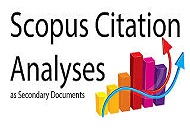Pengembangan Modul Praktikum Laboratorium Sekolah Tinggi Teknik Lingkungan (STTL) Mataram
DOI:
https://doi.org/10.33394/jk.v6i1.2321Keywords:
Practicum Modules, Proccess Skill Aproach.Abstract
The purpose of this study is to find out the results of the development of practicum modules in STTL Mataram laboratories are based on a process skills approach. The procedure of practicum module development refers to the ADDIE learning development model. Data collection techniques were carried out by means of an assessment by 3 experts and limited trials on students in the even semester of the 2018/2019 academic year at D-3 Kesehatan Lingkungan of STTL Mataram with a sample of 30 people. The instruments used in this study were expert assessment questionnaire and student response questionnaire on the results of module development. Data analysis techniques use expert judgment categorization criteria, whereas limited trials use the average categorization of the results of trials using the Gutman scale calculation. The results showed that the score of expert assessment of the modules developed were (1) Module 1 semester 1 average score of 3.5 included in both categories with information can be used with a little revision; (2) Module 3 semester average score 3.5 is included in both categories with information can be used with a little revision; and (3) Module 5 semester average score 3.5 is included in both categories with information can be used with a little revision. While the limited test results show that the modules developed are included in the Good category but need to be improved and refined to be able to produce modules that are ready to be used in practicum.
References
A. Mulyasa. 2003. Kurikulum Berbasis Kompetensi. Bandung: Remaja Rosda.
Anwar, I. (2010). Pengembangan Bahan Ajar. Bahan Kuliah Online. Bandung: Direktori UPI.
Conny, S. (1992). Pendekatan Keterampilan Proses: Bagaimana Mengaktifkan Siswa dalam Belajar. Jakarta: Gramedia.
Direktorat Jenderal Penjaminan Mutu Pendidikan dan Tenaga Kependidikan. (2008). Penulisan Modul. Jakarta: Departemen Pendidikan Nasional Indonesia.
Emda. A. (2017). Laboratorium Sebagai Sarana Pembelajaran Kimia Dalam Meningkatkan Pengetahuan Dan Ketrampilan Kerja Ilmiah. Lantanida Journal, Vol. 5 No. 1: 83-92, Fakultas Tarbiyah dan Keguruan UIN Ar-Raniry Banda Aceh.
Etty Nurmala Fadillah, Erni Angraini. (2018). Modul Praktikum Genetika Berbasis Keterampilan Proses Sains Untuk Mahasiswa Program Studi Pendidikan Biologi. Edubiotik, 3(1), 34-42
Late, M. N., Sutopo, & Yuliati, L. (2017). Peningkatan Pemahaman Konsep Tekanan Hidrostatis dan Hukum Archimedes Siswa SMP Melalui Pembelajaran Discovery. Jurnal Pendidikan, 1215-1219.
J Koswojo, E P F Noviani1, Herwinarso. (2019). Pengembangan Modul Petunjuk Praktikum Fisika Dasar Berbasis Inkuiri Pada Materi Suhu Dan Kalor Untuk Melatihkan Keterampilan Proses Sains Mahasiswa. The 5th Lontar Physics Forum 2019 (ISBN 978-623-92092-0-9: 92-98).
Menteri Pendidikan dan Kebudayaan Republik Indonesia. (2014). Peraturan Menteri Pendidikan dan Kebudayaan Republik Indonesia Nomor 49 Tahun 2014 Tentang Standar Nasional Pendidikan Tinggi. Jakarta.
Mustaqim, M.N. (2015). Pengembangan Modul Praktikum Berbasis Multimedia Interaktif pada Praktikum Elektronika Dasar I Materi Dioda II Mahasiswa Pendidikan Fisika UIN Walisongo. Universitas Islam Walisongo.
Khairunnufus, U. (2018). Pengembangan Modul Praktikum Kimia Berbasis Problem Based Learning untuk Kelas XI SMA. Universitas Mataram.
Pribadi, B.A. (2010). Model Desain Sistem Pembelajaran. Jakarta: Dian Rakyat.
Ratumanan, T. G., dan Laurens, T. (2011). Penilaian Hasil Belajar pada Tingkat Satuan Pendidikan Edisi 2. Surabaya: Unesa University Press.
Rohman, F. dan Lusiana, Y. (2017). Pengembangan Modul Praktikum Mandiri yang digunakan sebagai Asesmen Keterampilan Proses Sains dan keterampilan Sosial Mahasiswa. JIPFRI: Jurnal Inovasi Pendidikan Fisika dan Riset Ilmiah, Vol. 1 No. 2 : 47-56.
Rustaman, N.Y. (2005). Strategi Belajar Mengajar Biologi. Malang: Universitas Negeri Malang.
Sugiyono. (2011). Metode Penelitian Kuantitatif, Kualitatif, dan R&D. Bandung: Alfabeta.
Sugiyono. (2017). Statistika untuk Penelitian: Edisi Revisi. Bandung: Alfabeta.
Sutara, T & Sahromi, M. (1999). Pengelolaan Laboratorium I (BMP 10) dan Pengelolaan Laboratorium II (BMP 11) dalam Buku Materi Pokok Pengelolaan Pengajaran Biologi (PBIO 4470). Jakarta: Universitas Terbuka.
Downloads
Published
How to Cite
Issue
Section
Citation Check
License
License and Publishing AgreementIn submitting the manuscript to the journal, the authors certify that:
- They are authorized by their co-authors to enter into these arrangements.
- The work described has not been formally published before, except in the form of an abstract or as part of a published lecture, review, thesis, or overlay journal.
- That it is not under consideration for publication elsewhere,
- That its publication has been approved by all the author(s) and by the responsible authorities – tacitly or explicitly – of the institutes where the work has been carried out.
- They secure the right to reproduce any material that has already been published or copyrighted elsewhere.
- They agree to the following license and publishing agreement.
Authors who publish with JK agree to the following terms:
- Authors retain copyright and grant the journal right of first publication with the work simultaneously licensed under a Creative Commons Attribution License (CC BY-SA 4.0) that allows others to share the work with an acknowledgment of the work's authorship and initial publication in this journal.Â
- Authors are able to enter into separate, additional contractual arrangements for the non-exclusive distribution of the journal's published version of the work (e.g., post it to an institutional repository or publish it in a book), with an acknowledgment of its initial publication in this journal.
- Authors are permitted and encouraged to post their work online (e.g., in institutional repositories or on their website) prior to and during the submission process, as it can lead to productive exchanges, as well as earlier and greater citation of published work.
- Open Data Commons Attribution License, http://www.opendatacommons.org/licenses/by/1.0/ (default)

This work is licensed under a Creative Commons Attribution-ShareAlike 4.0 International License.








